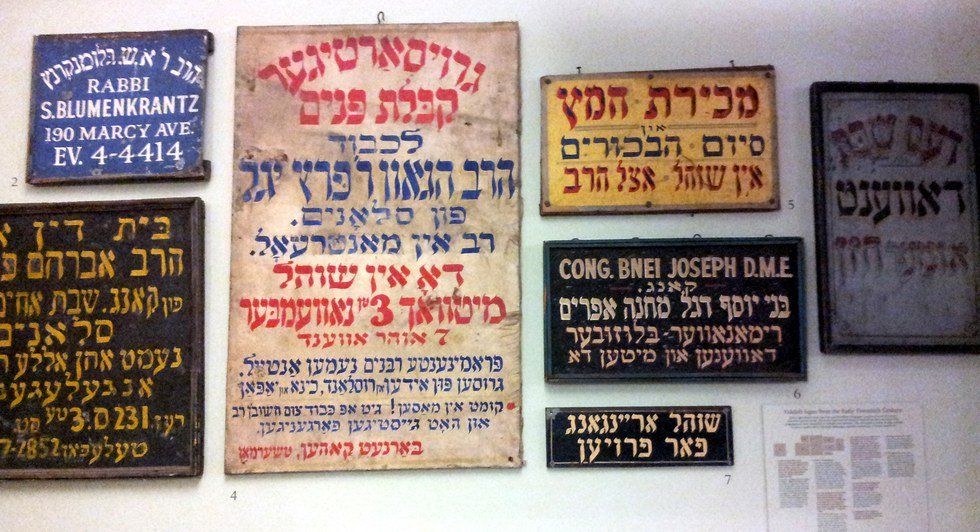Yiddish, a combination of German and Hebrew, was a language commonly used by Central and Eastern European Jews. Over the years, certain Yiddish words crept into everyday English; others, though not as widely known by English speakers, perfectly convey meanings and ideas in a way that English can't. Here are a few Yiddish words that everyone should have in their vocabulary:
1. Klutz
Directly translates to "block of wood"; commonly used in English to describe a particularly clumsy person.
"I'm sorry I knocked over your bookshelf and made a hole in your wall, I'm just a klutz sometimes."
2. Schlep
To carry something heavy, or to make a long and tedious journey.
"I schlepped all the way to class, only to find out that it was cancelled."
3. Chutzpah
Extreme nerve or arrogance; confidence with a negative connotation.
"Donald Trump's campaign is all chutzpah."
4. Schmaltzy
Overly sentimental or romantic.
"If we have to listen to any more of this schmaltzy music, I'm going to throw up."
5. Kvetch
Literally, "to press or squeeze"; colloquially, to complain or whine.
"We know that you have a lot of work to do, but quit kvetching about it."
6. Schmooze
To make small talk or to gossip - another Yiddish word commonly used in English.
"She had to schmooze with the professor so she'd get offered a research position."
7. Mensch
An honorable, good person, someone with a strong character.
"Thanks for helping me out with the project - you're a true mensch!"
8. Spiel
Stems from the German word for "play"; an excessively long story or sales pitch.
"I had to listen to his whole spiel for twenty minutes before he finally got to the point."
9. Schmutz
A little bit of dirt or filth; commonly used by doting Jewish mothers or grandmothers.
"You've got a little schmutz on your face, boychik, let me wipe it off!"
10. Oy vey!
Essentially, "woe is me"; an expression conveying dismay or exasperation.
"Oy vey, I think I'm gonna move to Canada after this election."





















